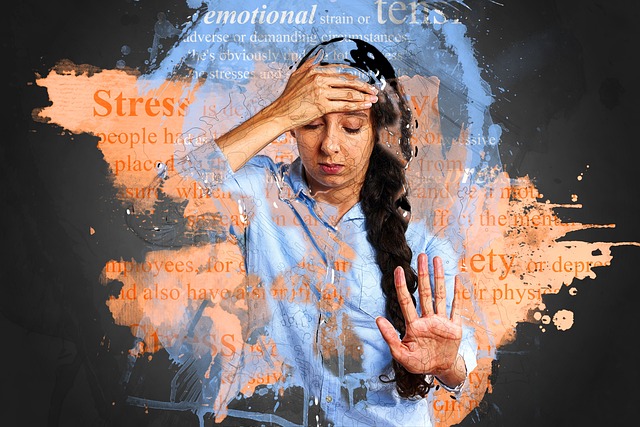Anxiety disorder is a mental health condition that affects millions of people worldwide. It is characterized by excessive worry, fear, and nervousness that can interfere with daily life. Unfortunately, there is still a stigma surrounding mental health that prevents many individuals from seeking help. It is important to break this stigma and encourage people to seek support for their mental health.
What is Anxiety Disorder?
Anxiety disorder is a mental health condition that causes individuals to experience excessive worry, fear, and nervousness. It  can be triggered by specific situations or occur without any apparent cause. There are several types of anxiety disorders, including generalized anxiety disorder, panic disorder, social anxiety disorder, and specific phobias.
can be triggered by specific situations or occur without any apparent cause. There are several types of anxiety disorders, including generalized anxiety disorder, panic disorder, social anxiety disorder, and specific phobias.
Symptoms of anxiety disorder can vary from person to person but may include restlessness, irritability, difficulty concentrating, muscle tension, and sleep disturbances. These symptoms can interfere with daily life and make it difficult to perform everyday tasks.
The Impact of Anxiety Disorder
Anxiety disorder can have a significant impact on an individual’s daily life. It can cause physical symptoms such as headaches, stomachaches, and fatigue. Emotional symptoms may include feelings of dread or impending doom, irritability, and difficulty controlling worry.
Anxiety disorder can also affect relationships and work performance. Individuals with anxiety may avoid social situations or have difficulty forming close relationships. They may also struggle with work-related tasks due to difficulty concentrating or making decisions.
Breaking the Stigma: Living with Anxiety Disorder
Living with anxiety disorder can be challenging, but it is important to remember that you are not alone. Many individuals have shared their personal stories of living with anxiety disorder in an effort to break the stigma surrounding mental health.
Sharing experiences and seeking support from others who understand what you are going through can be incredibly helpful in managing anxiety disorder. It is also important to challenge misconceptions and stereotypes about mental health by educating others about the realities of living with anxiety disorder.
Coping Strategies for Anxiety Disorder
There are several coping strategies that can be helpful in managing anxiety disorder. Self-care practices such as getting enough sleep, eating a healthy diet, and engaging in regular exercise can help reduce symptoms of anxiety.
Relaxation techniques such as deep breathing, progressive muscle relaxation, and visualization can also be helpful in managing anxiety. Mindfulness and meditation practices can help individuals learn to focus on the present moment and reduce worry about the future.
Seeking Professional Help
It is important to seek professional help if you are struggling with anxiety disorder. There are several types of therapy and treatment options available, including cognitive-behavioral therapy, medication, and alternative therapies such as acupuncture or yoga.
Overcoming barriers to seeking help, such as stigma or financial concerns, can be challenging but it is important to prioritize your mental health. Seeking professional help can provide you with the tools and support you need to manage your anxiety disorder.
Support from Family and Friends
Family and friends can play an important role in supporting individuals with anxiety disorder. Communication and understanding are key in providing support to loved ones with mental health conditions.
Encouraging treatment and self-care practices such as exercise or mindfulness can also be helpful in managing anxiety disorder. It is important to remember that supporting someone with a mental health condition can be challenging, but it is also incredibly rewarding.
Taking Control of Your Mental Health
Taking control of your mental health is an empowering step towards managing anxiety disorder. Advocating for yourself by seeking resources or speaking up about your needs can help you feel more in control of your mental health.
Self-compassion and self-acceptance are also important in taking control of your mental health. Remembering that it is okay to struggle and seeking support when needed can help you manage your anxiety disorder more effectively.
Anxiety disorder is a common mental health condition that can have a significant impact on daily life. Breaking the stigma surrounding mental health and seeking support is important in managing anxiety disorder.
Coping strategies such as self-care practices, relaxation techniques, and seeking professional help can be helpful in managing anxiety disorder. Support from family and friends can also play an important role in managing anxiety disorder.
Taking control of your mental health by advocating for yourself and practicing self-compassion can help you manage your anxiety disorder more effectively. Remember that you are not alone and there is support available to help you manage your anxiety disorder.








